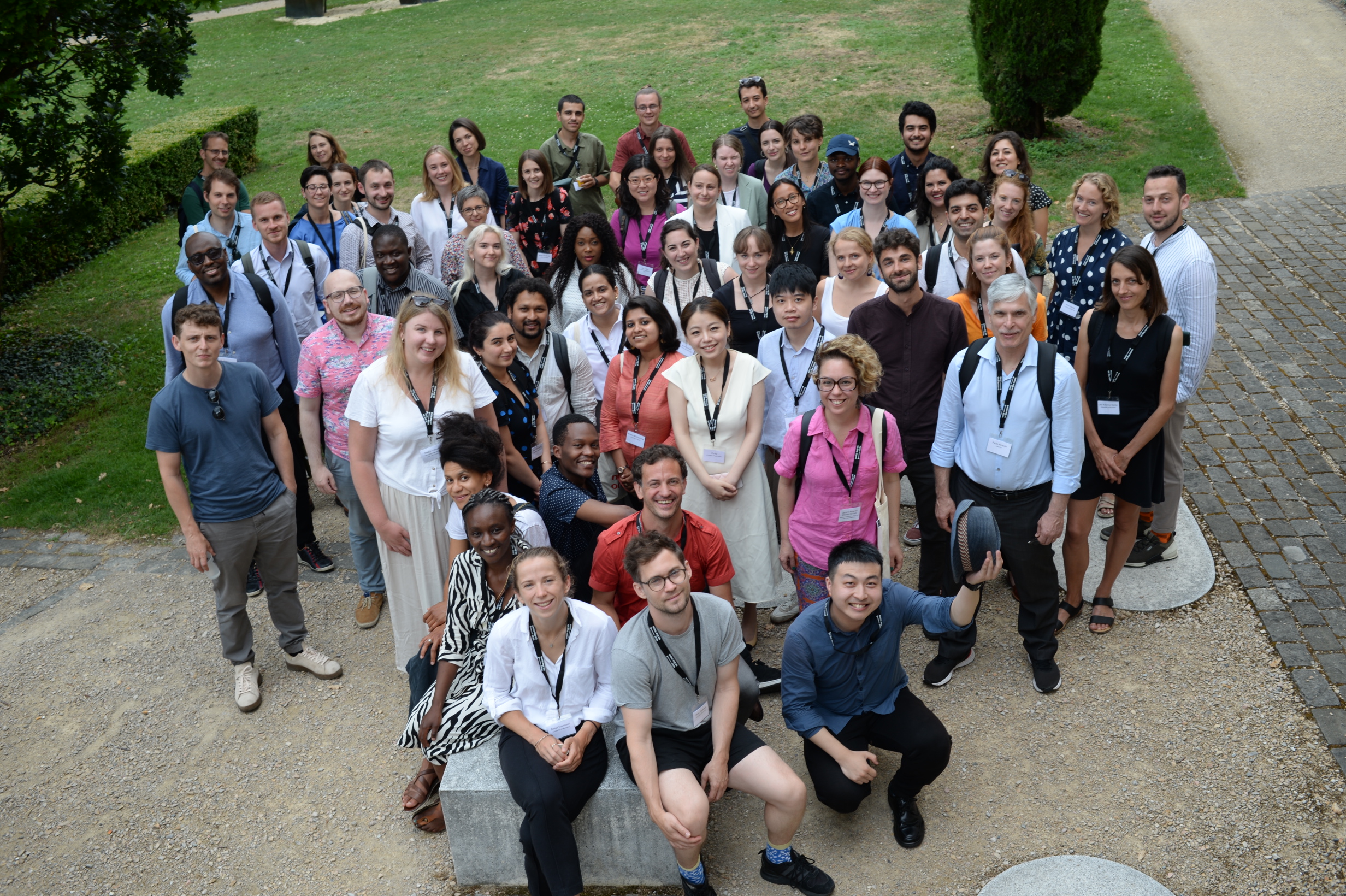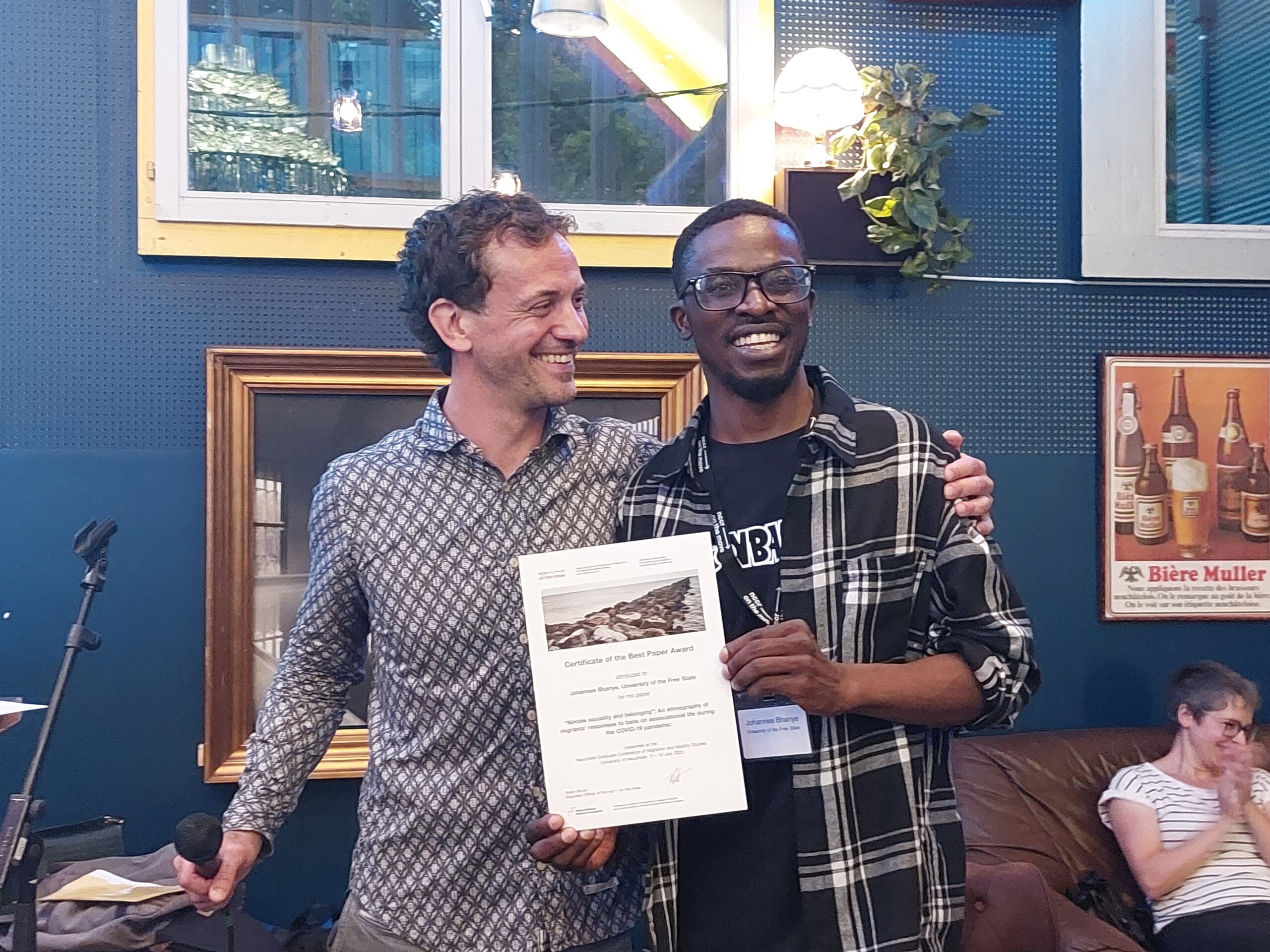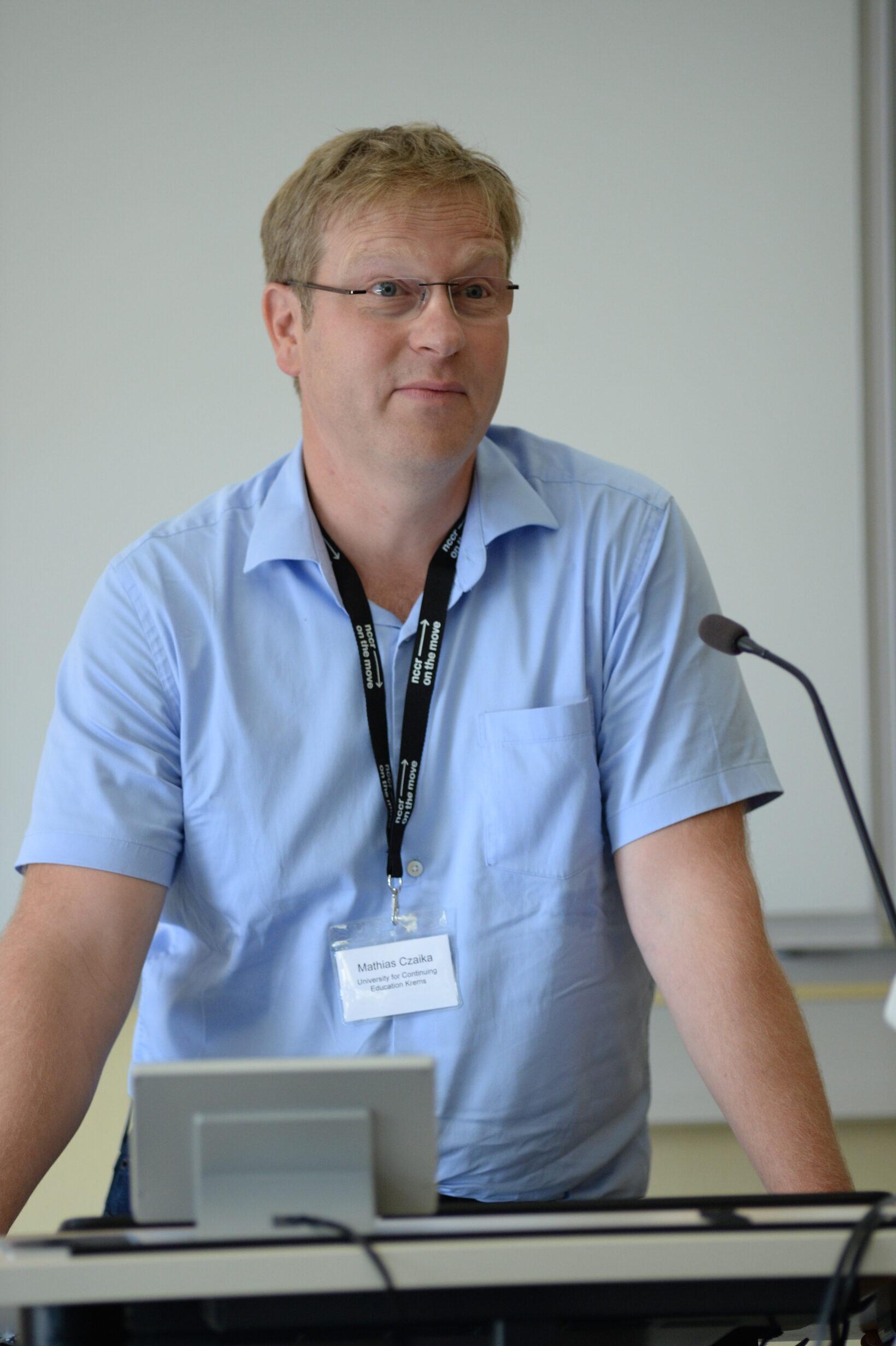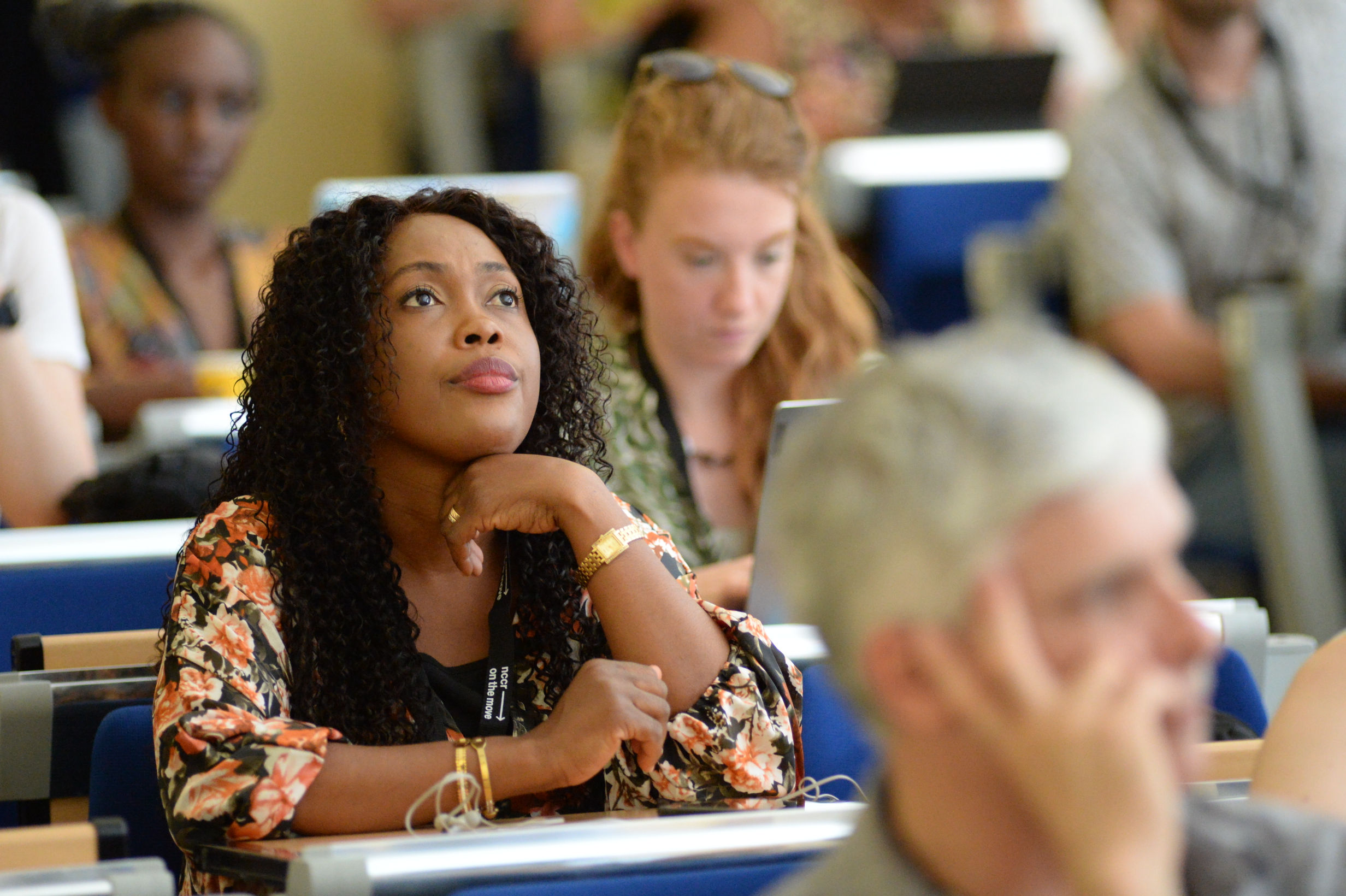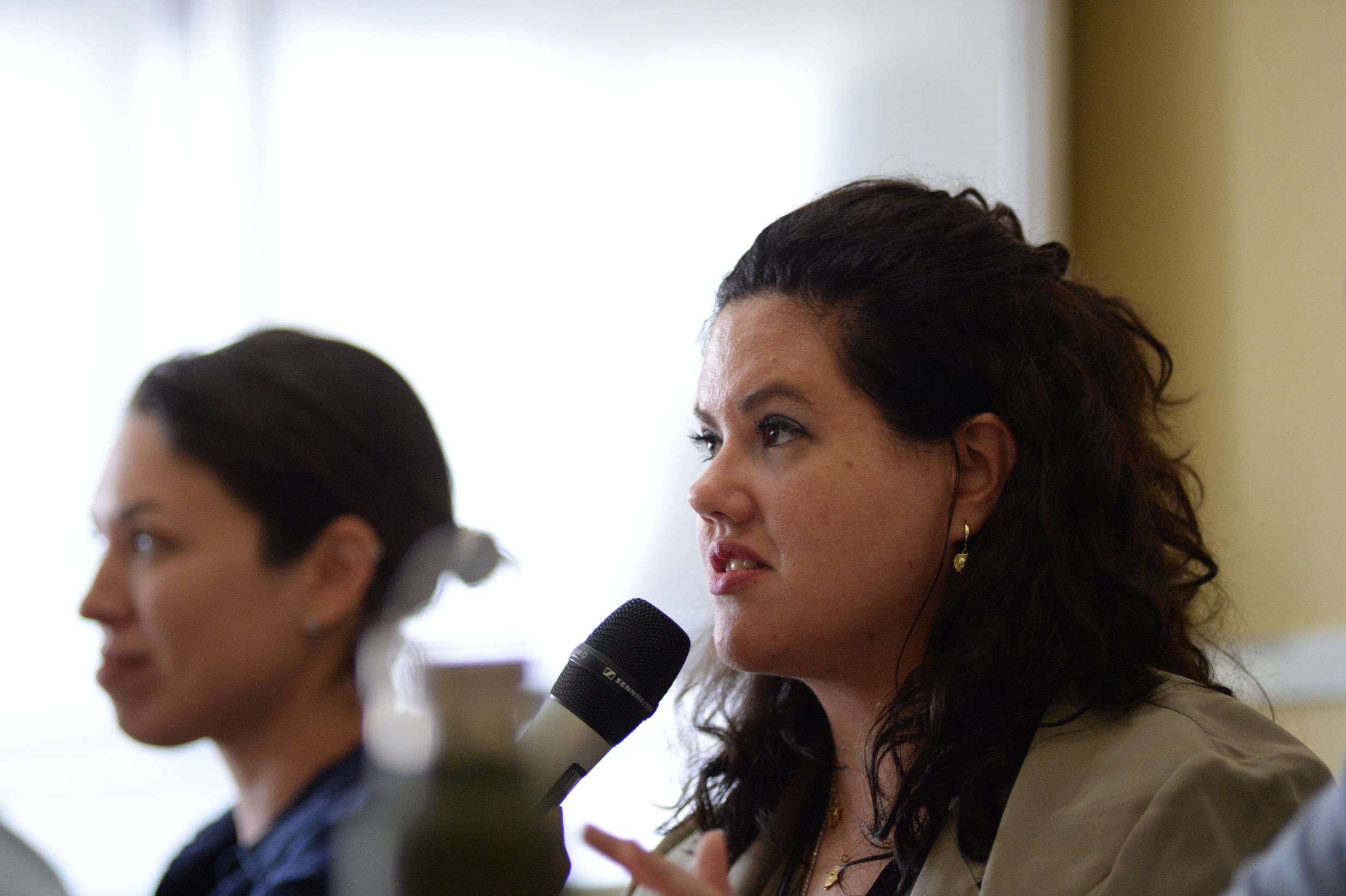Reflecting on the Neuchâtel Graduate Conference for Migration and Mobility Studies 2023
The Neuchâtel Graduate Conference’s sixth edition focused on “Migration and Im/Mobility in Times of Entangled Crises: Concepts, Practices, and Challenges,” and took place at the University of Neuchâtel on July 11-12. This year’s conference provided an engaging and informal setting where researchers from diverse institutions and interdisciplinary backgrounds could share ideas, receive expert feedback, network, and initiate collaborative efforts.
Our conference owes its success to the work of its organizing committee, consisting of nccr – on the move members: Caroline Aka, Sara de Athouguia Filipe, Vestin Hategekimana, Doris Niragire Nirere, Oliver Pedersen, Eloise Thompson, and Robin Stünzi (chair). Through collaboration with other members, they conceptualized the conference theme, reviewed applications, selected participants for panels, organized side activities, chaired sessions, and selected candidates for the Best Paper Award.
Despite the challenge posed by the number of applications (over 160) from young researchers in 40 countries, the selection committee narrowed down the accepted proposals to 64, distributed across 16 thematic panels exploring various aspects of the link between crisis, migration, and (im)mobility.
Johannes Bhanye from the University of the Free State received the Best Paper Award for his article, “”Nimble sociality and belonging”: An ethnography of migrants’ responses to bans on associational life during the COVID-19 pandemic.” The jury acknowledged the paper’s well-structured approach, addressing a significant issue and drawing on rich ethnographic data to provide robust and compelling results.
The conference also featured a keynote lecture by Mathias Czaika from the University for Continuing Education Krems, titled “European Migration Governance in the Context of Uncertainty,” available on the nccr – on the move YouTube channel. Lorenzo Piccoli (EUI), our former Scientific Officer, presented insights from the data he had been collecting to establish a Global Directory of Migration Research. His thought-provoking talk and the exchange that followed with the participants are available here.
We also had the pleasure to host a round table on “Migration Governance in Times of Entangled Crises: Lessons from Brazil and South Africa,” including perspectives from Leiza Brumat (Eurac Research, Bolzano), Paulo Sérgio Almeida (UNHCR Brazil), Lily Sanya (IOM South Africa), and Nene Ernest Khalema (School of Built Environment and Development Studies, University of Kwazulu-Natal).
In addition to traditional lectures and panels, our committee organized social activities, such as a guided tour on the traces of slavery in Neuchâtel, a memorable “pub quiz,” and the screening of the movie “Hit the Road” by Panah Panahi.
Participant feedback has been overwhelmingly positive, praising the diversity of participants and topics, presentation quality, and the warm and supportive atmosphere facilitating valuable networking opportunities. Some participants noted room temperature discomfort and challenges in attending desired presentations due to parallel sessions. Constructive recommendations for future editions were noted, particularly concerning the clarity and timeliness of information sent to presenters, discussants, and chairs before the conference. A detailed survey report is available here.
The seventh edition is scheduled for July 11-12, 2024. While maintaining key features, the organizers plan to experiment with the event’s format to enhance further the collaborative and interdisciplinary exchange between junior and senior researchers. We already look forward to welcoming many of you there!


